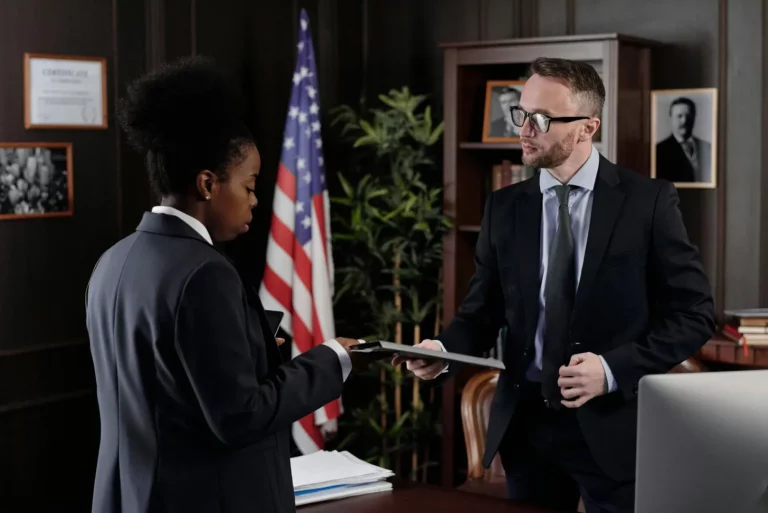Preparing for Divorce Mediation: A Comprehensive Guide
Have you ever wondered how to best prepare for divorce mediation? At TheBostonDivorceLawyer, we have years of experience guiding clients through this process. Read on to discover our top tips for getting ready for your mediation session.
As demonstrated by legal experts in the book “Divorce Mediation: A Practical Guide for Therapists and Counselors” by Lisa J. Herrick, it is important to gather all relevant financial documents such as tax returns, bank statements, and asset information before mediation. Additionally, preparing a list of all assets and debts to be discussed during mediation is crucial for a successful negotiation. Finally, practicing effective communication skills and remaining calm and focused during the mediation process can help reach a mutually beneficial agreement (Herrick, L. J. (1997). Divorce Mediation: A Practical Guide for Therapists and Counselors. Greenwood Publishing Group).
Understanding the process
This process helps both spouses come to agreements on key issues like child custody, dividing assets, and spousal support in a cooperative and respectful way. It’s important to understand what mediation is and how it differs from going to court.
In mediation, a neutral person called a mediator helps the couple talk things through and find solutions that work for both of them. The mediator doesn’t decide for the couple but helps guide them to agreements they both can accept.
If you think about it, to get ready for divorce mediation, you’ll need to gather all the important information and documents about finances, assets, debts, and child-related matters. This will help both sides make informed decisions during the mediation. It’s also very important to go into mediation with an open mind and a willingness to listen to the other person’s viewpoint.
Good communication is key in mediation. Be honest and clear about your needs and concerns to build trust and respect, making the discussions more productive.
Preparing financial documents
Gather important papers like bank statements, tax returns, investment accounts, and property records. Organize them neatly and make sure you can easily find them. Make copies and store them safely.
Check all these financial papers carefully to make sure everything is correct. If anything is missing or looks wrong, note it down, as you’ll need to talk about it during mediation.
During mediation, be honest about your finances. Show all your documents and be ready to explain any financial decisions or transactions. Honestly, full transparency is necessary for the mediation process.
Consider getting help from a financial advisor or mediator. They can guide you on what documents you need and help with any tricky financial issues.
Compiling a list of assets
Gather all your financial documents, like bank statements and tax returns. This will help you understand your finances and make sure assets are divided fairly. Think about shared properties, like your home or car, and figure out their worth. Don’t forget personal items that mean a lot to you, like jewelry or family heirlooms. Also, list any debts, like credit card balances or loans.
Keep talking openly with your spouse and be honest about your assets to reach a fair deal. Keeping it real, take your time to collect all the information you need and be ready to discuss and negotiate during mediation. Make sure to put your children’s needs first and ensure they have financial support. Keep everything organized and store documents safely for reference during mediation sessions. Be ready to compromise and work together for a good outcome. The goal is to divide everything fairly and move forward with a clear financial plan.
Setting goals for mediation
Before starting the mediation process, it’s very important to think about what you want to achieve. This could involve issues like child custody, dividing property, or financial support. Having clear goals can help you work through mediation better and find a solution that works for everyone.
When setting your goals, consider what’s most important to you and what you’re willing to compromise on. It might be useful to make a list of your goals and talk them over with your mediator before you begin the sessions. On a serious note, be realistic about what can be achieved through mediation. You probably won’t get everything you want, so be flexible and ready to compromise.
Make sure to communicate your goals clearly to both the mediator and the other party. Explain why each goal matters to you and listen to the other party’s viewpoint as well. If you enter mediation with clear goals and a readiness to compromise, you’re more likely to reach a successful resolution.
Understanding legal rights
Legal rights are the rules that look out for people in society. In a divorce, these rights include things like who gets property, who takes care of and supports the kids, and how money is divided. Knowing your legal rights can help you get a fair deal during mediation.
To understand your legal rights better, you might want to talk to a family law lawyer. They can explain how the law works for your situation and tell you what you’re entitled to. On a serious note, keep in mind that legal rights can differ based on where you live and the details of your case, so it’s important to get advice that fits your specific case.
In divorce mediation, knowing your legal rights can help you stand up for yourself and get a fair outcome. It also helps you see any possible problems ahead of time and get ready for them. By knowing your legal rights, you can go into mediation with confidence and aim for a solution that works well for both sides.

In Final Consideration
Preparing for divorce mediation is essential for ensuring a smooth and successful process.
What TheBostonDivorceLawyers is recommending to collect is, by gathering all necessary documents, considering your priorities, and approaching the mediation with an open mind and willingness to compromise, you can increase your chances of reaching a fair and mutually beneficial agreement with your spouse. Remember to communicate effectively and seek guidance from professionals when needed.
References
1. “The Good Divorce: Keeping Your Family Together When Your Marriage Comes Apart” by Constance Ahrons, Harper Perennial.
2. “Divorce and Separation: Context, Causes, and Consequences” by Marion Gindes, Routledge.
3. “Cooperative Divorce: A Revolutionary New Way to Restructure Your Family, Resolve Legal Issues, and Move on with Your Life” by Pauline Tesler, Hudson Street Press.







